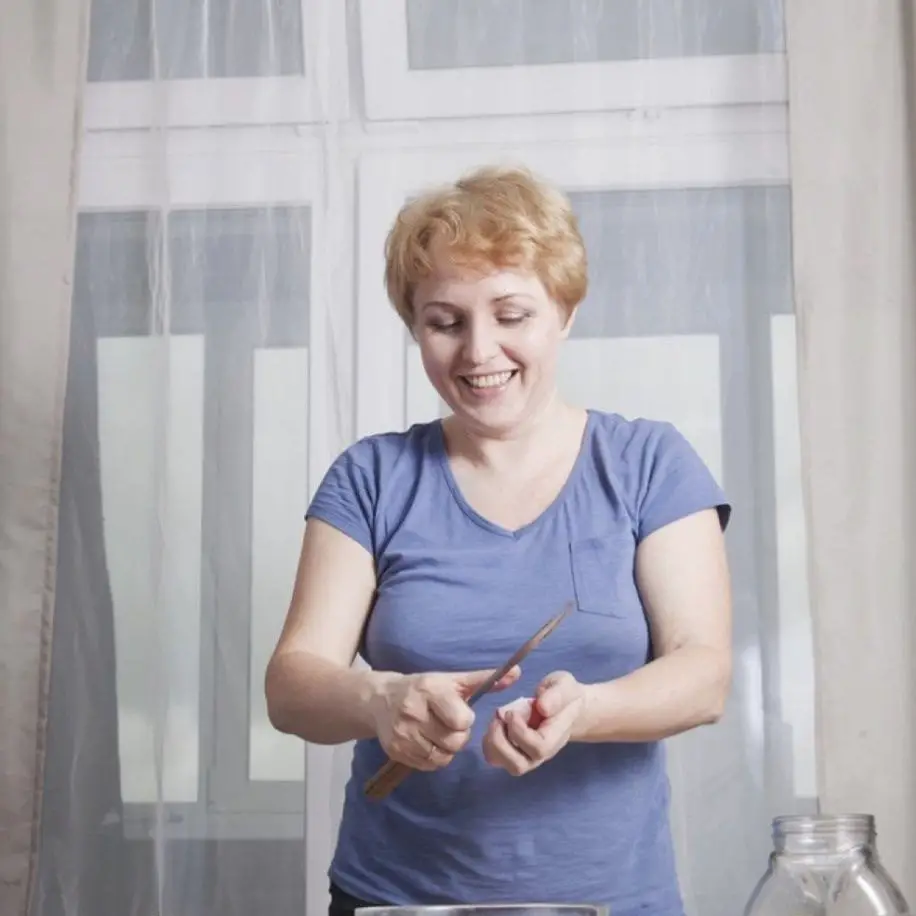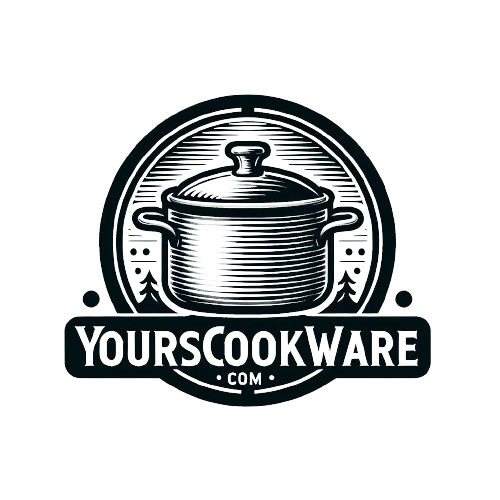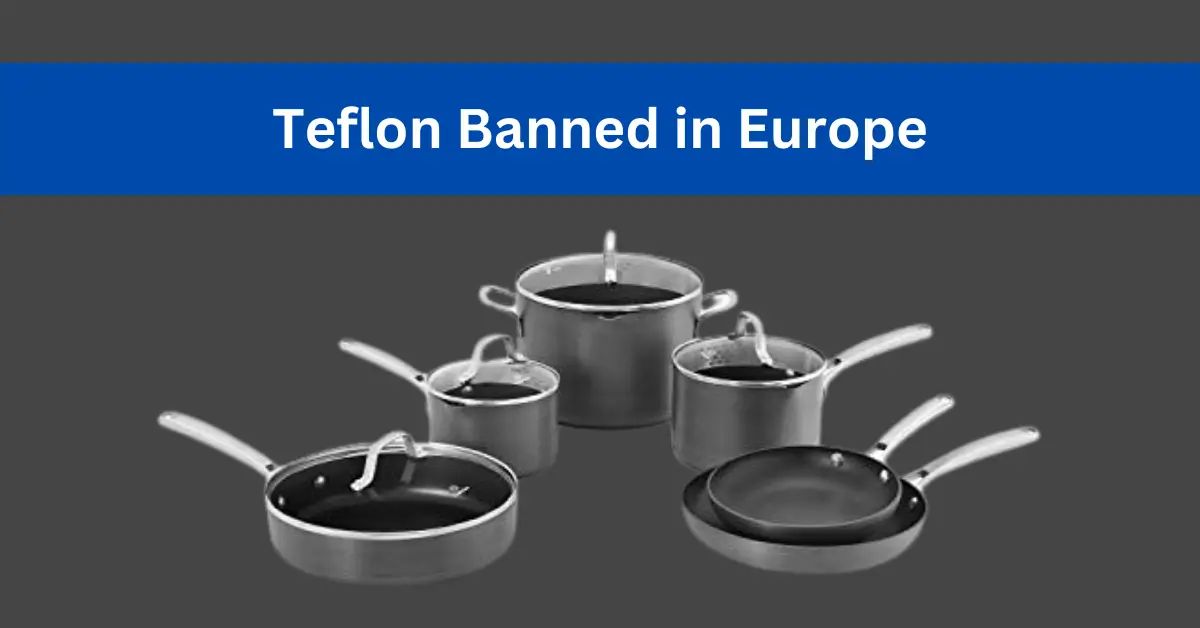Is Teflon banned in Europe? No, Teflon (PTFE) is not banned in Europe. Aluminum cookware that has PFOA or PFAS is banned in Europe. To be clear, Teflon is allowed, but PFOA and PFOS are banned in Europe.
Some people worry about Teflon (PTFE) coating. They think it might be unsafe for their health. But recent studies said that Teflon isn’t harmful to human bodies or pets.
Today’s Teflon-made cookware can withstand up to 500 degrees F without leaching chemicals. However, you should be concerned about the old Teflon cookware.
Because Teflon-coated cookware that is made before 2013 is unsafe. The Teflon cookware at that time contained a chemical called PFOA which is harmful to the human body.
So Is Teflon banned in Europe?
No, Teflon is not banned. There has been some controversy surrounding its safety, but it is still used in many products. The main concern with Teflon is that it can release harmful chemicals into the air when heated to high temperatures. However, Teflon is safe if not heated to extremely high temperatures.

Is Teflon banned in the U.K. (Explained)?
Teflon is not banned in the U.K. and can still be sold and used in cookware.
Teflon is a brand name for a type of non-stick coating that is commonly used in cookware.
Teflon is made of a synthetic fluoropolymer called polytetrafluoroethylene (PTFE).
Teflon cookware is safe when used correctly and not overheated beyond its temperature limit.
The temperature limit of Teflon cookware is around 260°C (500°F).
Use Teflon cookware safely, avoid heating it above its temperature limit, and do not use metal utensils that could scratch or damage the non-stick coating.
When Teflon is heated above its temperature limit or damaged, it can release toxic fumes that can harm humans and animals.
It is essential to follow the manufacturer’s instructions for the proper use and care of Teflon cookware to avoid potential risks.
Overall, Teflon cookware can be safe when used properly, but it is essential to be aware of its limitations and potential risks.
Is PFAS banned in Europe?
Yes, PFAS is banned in Europe. PFAS are a group of artificial chemicals used in various industrial and consumer products.
PFAS are unsafe because they can accumulate in the environment and the human body, leading to potential health risks such as cancer, reproductive and developmental issues, and immune system damage.
There are several ways to tell if your cookware has a PFAS coating. One way is to look for a label that says “PFOA-free” or “PFOS-free.” Another way is to look for cookware advertised as made with safe, non-stick materials. If you’re unsure, you can always contact the manufacturer to ask about the safety of their products.
If your cookware has PFAS, consider replacing it with safer alternatives such as stainless steel, cast iron, or ceramic-coated cookware.
Is PFOA banned in the USA?
In 2014, the use of PFOA in the production of cookware was essentially banned in the United States, though some existing products containing PFOA may still sell.
In 2012, the Environmental Protection Agency (EPA) asked eight significant companies to voluntarily stop using PFOA by 2015 and eliminate all PFOA from their products by 2016.
The ban is due to health concerns associated with PFOA. Studies have linked PFOA exposure to an increased risk of cancer, liver damage, and other health problems.
Experts recommend that consumers avoid using cookware that contains PFOA and opt for safer alternatives, such as ceramic or stainless steel cookware.

Does Teflon have PFAS?
Teflon is a brand name for a non-stick coating type often made with a chemical called polytetrafluoroethylene (PTFE). PTFE is a type of fluoropolymer, a family of chemicals containing fluorine.
PFAS (per and poly-fluoroalkyl substances) are a large group of chemicals containing fluorine. However, not all fluorinated chemicals are PFAS.
While PTFE is not considered a PFAS, some non-stick coatings may contain small amounts of PFAS as impurities or as part of manufacturing. The presence and level of PFAS in Teflon and other non-stick coatings can vary depending on the product and manufacturing process.
It’s worth noting that while PFAS have been found to persist in the environment and have been linked to potential health risks, the U.S. Environmental Protection Agency (EPA) has stated that PTFE is not considered a significant source of PFAS exposure.
Guidelines for using non-stick cookware safely
- Avoid preheating empty non-stick cookware as it can quickly become excessively hot. And always add liquid or food to the pan to absorb any excess heat.
- Maintain a low to medium heat setting on your cooktop
- Better opening windows and using exhaust fans can help.
- Replace non-stick cookware once it begins to show signs of wear and tear.
- Choose for hand washing over dishwasher cleaning to preserve the longevity of the non-stick coating
Conclusion
So today we learned that Teflon (PTFE) is not banned in Europe. If you want to delve into this issue, you can read the complete statement from the American Cancer Society. You can weigh all the pros and cons of using this product, and make a choice in your favor! Good luck!

I am Linda. A housewife and a writer, and also the founder of this site. I love cooking and collecting cookware sets. I’ve been blogging since 2020, and in this blog, you can find cookware-related problems and solutions, cookware reviews, safe cookware sets, and more.
I have put a lot of effort into gathering here the experience and knowledge that I have, and I want to help every reader.

